第25章 10(1)
Let us now make, as it were, a fresh beginning, and consider the heterogeneous parts, taking those first which are the first in importance. For in all animals, at least in all the perfect kinds, there are two parts more essential than the rest, namely the part which serves for the ingestion of food, and the part which serves for the discharge of its residue. For without food growth and even existence is impossible. Intervening again between these two parts there is invariably a third, in which is lodged the vital principle.
As for plants, though they also are included by us among things that have life, yet are they without any part for the discharge of waste residue. For the food which they absorb from the ground is already concocted, and they give off as its equivalent their seeds and fruits.
Plants, again, inasmuch as they are without locomotion, present no great variety in their heterogeneous parts. For, where the functions are but few, few also are the organs required to effect them. The configuration of plants is a matter then for separate consideration.
Animals, however, that not only live but feel, present a greater multiformity of parts, and this diversity is greater in some animals than in others, being most varied in those to whose share has fallen not mere life but life of high degree. Now such an animal is man.
For of all living beings with which we are acquainted man alone partakes of the divine, or at any rate partakes of it in a fuller measure than the rest. For this reason, then, and also because his external parts and their forms are more familiar to us than those of other animals, we must speak of man first; and this the more fitly, because in him alone do the natural parts hold the natural position; his upper part being turned towards that which is upper in the universe. For, of all animals, man alone stands erect.